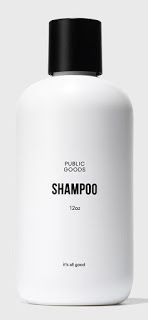The USPTO refused to register the mark PUBLIC GOODS for various personal products, including bar soap, toilet paper, and tooth brushes (GOODS disclaimed), on the ground of likelihood of confusion with the registered mark PUBLIX (in standard character and design form) for, inter alia, bar soap, dental floss, and toilet paper. On appeal, the Board found the goods to be identical or related. B0ut what about the marks? The Board issued a split decision, with Judge Mermelstein dissenting. How do you think this came out? In re Don't Run Out, Inc., Serial No. 87344127 (October 31, 2019) [not precedential] (Opinion by Judge Angela Lykos).

When the involved goods are identical in part, a lesser degree of similarity between the marks is needed to support a finding of likelihood of confusion. The examining attorney relied on the proposition that similarity in sound alone may support such a finding. She contended that PUBLIX is identical in sound to the plural version of PUBLIC. Since GOODS is disclaimed by applicant, and PUBLIC is the first word in applicant's mark, she found PUBLIC to be the dominant element.
Applicant maintained that the examining attorney improperly dissected its mark, and that the marks as a whole engender different meanings and commercial impressions: PUBLIX is a coined term with no recognized meaning, while PUBLIC GOODS conveys a meaning of social benefit.
The panel majority found the differences in connotation and commercial impression to be critical. The evidence established that PUBLIC GOODS projects the connotation and impression that applicant's products "are available to all consumers due to their affordability, and beneficial to the public because they are environmentally safe." [N.B.: Nothing in the identification of goods or the mark itself says that they are inexpensive or environmentally safe - ed.].
The majority concluded that the differences in meaning and commercial impression outweighed the other du Pont factors, and so it concluded the confusion is not likely and it reversed the refusal.
Judge Mermelstein, in dissent, agreed that PUBLIC GOODS appears to have a particular meaning in the field of economics, "as a product which is 'non-rivalrous' and 'non-excludable." But "[i]t is far from clear that purchasers of Applicant's goods ... would ascribe that meaning to the mark when it is encountered on shampoo, toilet paper, and toothbrushes." Purchasers would more likely consider the mark to refer simply to goods available to the public.
Judge Mermelstein disagreed that PUBLIX has no recognized meaning. "PUBLIX is a homophone and an obvious misspelling of the plural or possessive of PUBLIC."
The addition of the word GOODS somewhat distinguished applicant's mark, but Judge Mermelstein would assign little weight to that word, and he noted that it is the first word in a mark that is most likely to be remembered by consumers.
Considering the marks in their entireties, Judge Mermestein would find them "sufficiently similar given the identical and closely related goods at issue," and he would affirm the refusal to register.
The content of this article is intended to provide a general guide to the subject matter. Specialist advice should be sought about your specific circumstances.
